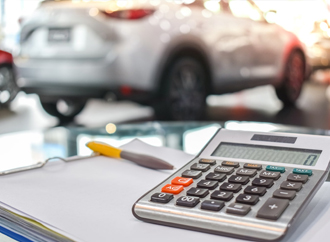
Financing a car can be a stressful prospect, as not only does it involve a considerable amount of money but many of the terms used with vehicle purchases are exclusive to it. However, the fact is that ultimately choosing how to finance your car doesn't have to be as complicated as it sounds
As long as you get to understand what each option truly offers then the benefits and disadvantages of each model are apparent and you should be able to find the option that better suits your interest. So with the above in mind today we'll be taking a closer look at the different methods of financing available to car purchasers and what each one brings to the table.
What does financing mean?
Let's go with the basics before getting into the specific details. What does car financing mean and how does it apply in practice for potential clients? Car financing is in short the various processes and products involved in allowing an individual to obtain a car with the involvement of other financial institutions like a bank or a car dealership.
In broad terms buying a car upfront in a single payment will always be the most affordable option, but it's not a feasible option for all interested clients. So car financing covers all those benefits and plans that exist to help support a client's choice to buy a car; the most common types being loans and leases.
Types of Loans
A loan is in short a debt. You as the beneficiary receive a benefit (in this case a vehicle) and obtain a responsibility to pay it in installments to completely cover the debt in a fixed amount of time. Loans cover both the price of the vehicle and interest rates, so their value can vary considerably from institution to institution. However, the main difference between the types of loans is from whom you get the loan.
A direct loan is a type of loan that is granted by a bank, finance company, or credit union. In this case, your responsibility lies with the financial institution, as the dealership receives the money and your debt is with the bank itself.
Alternatively, you might opt for a dealership loan and get a financial contract with the dealership itself. In this case, the installments and rates are settled between you and the dealership with no other institution involved, though ultimately the general approach of monthly installments is the same.
The most important thing to consider with loans is simply to compare and contrast extensively. No type of loan is inherently better, so the costs involved come down to each institution, and being widely informed will help you make the better call.
Car Leases
A car lease is an alternative form of financing in which you pay for the right to lease or rent a car instead of owning it. During the lease period, you'll be granted the right to drive the vehicle for a given number of months and miles, but you aren't paying to purchase the vehicle. The real cost the client pays is the "depreciation value" which refers to the value lost by a vehicle after being used for a given amount of time.
Since the client in a lease isn't paying the full price of the vehicle the monthly installments are considerably lower, and the option can be considerably cheaper for those who need a vehicle at the moment and are not as concerned with owning it over a long time. Nonetheless, leasing does allow for purchasing the vehicle after the contract is over, however in that case the client will still have to pay all the remaining value of the car.